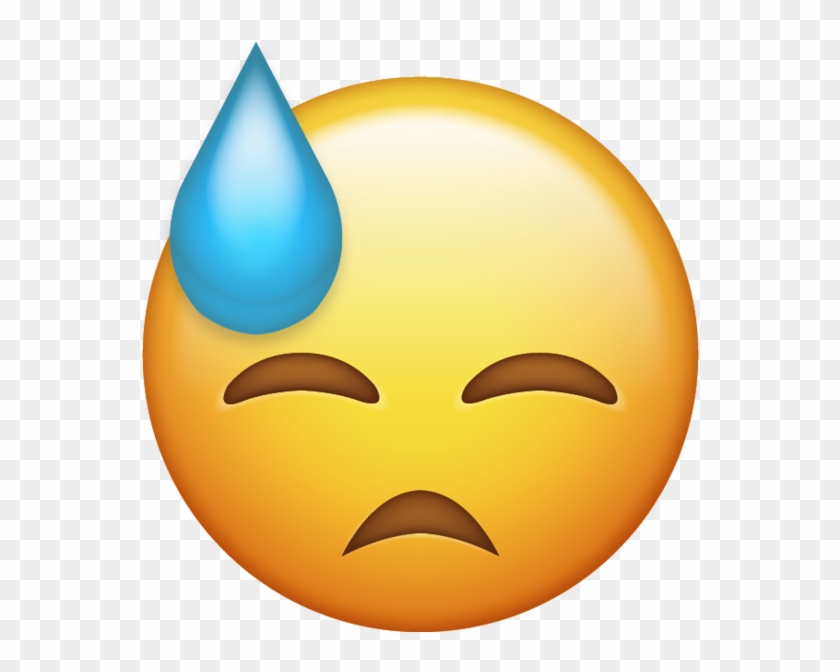Plus, why you shouldn’t ignore them if they happen often.
By: Korin Miller Published on November 20, 2020
Sweat is a normal bodily function—you sweat, for the most part, when your body gets hot and needs to cool down (think: when it’s when it’s warm outside, when you exercise, or even when you’re anxious, nervous, or afraid).
But sometimes, the body can experience something called “cold sweats,” Erik Blutinger, MD, an emergency medicine physician at Mount Sinai Queens, tells Health. “Cold sweats are a bit of a medical mystery,” he says. “They involve a lot of complicated parts of the human body.”
While the term “cold sweats” isn’t an actual medical diagnosis—and so, there’s a lot about the phenomenon that’s open to interpretation—doctors still know what patients are talking about when they describe the feeling. Here’s what you need to know about cold sweats, plus what they can mean—and how to get rid of them.
What are cold sweats?
Normally, “sweating is your body’s response to various internal and external stressors,” Arindam Sarkar, MD, a primary care physician and assistant professor of family and community medicine at Baylor University, tells Health. “Normal sweating cools your body through evaporation and occurs in response to excess warmth or exertion.”
But cold sweats are slightly different. Cold sweats can be used to describe chills, night sweats (i.e., getting sweaty when you sleep), or diaphoresis—that is, sweating in response to an illness or medication, Dr. Sarkar says. Basically, there’s a wide range here.
In general, though, experts agree that cold sweats are when you start sweating but you feel chilly, making this slightly different from regular sweating, where you perspire and just feel normal.
What causes cold sweats?
There’s a wide variety of things that can cause cold sweats, but generally, the symptom can be narrowed down to an infection, fever, or underlying health issue, like a heart attack or low blood sugar, Kathryn Boling, MD, a primary care physician at Baltimore’s Mercy Medical Center, tells Health. Cold sweats can even be a sign of hormonal changes, like going through a hot flash during menopause or having your hormone levels readjust after a pregnancy, Dr. Boling says. Feelings of stress or anxiety can also lead to cold sweats.
In the case of a fever, you’d likely develop cold sweats when your fever starts to break, Dr. Boling says. “You can be in a situation where you’ve been really hot because of the fever, it breaks, and then you sweat and feel chilled,” she says. (Having an infection could cause the fever that leads to cold sweats, she points out.)
You can even get cold sweats when you exercise or just wrap up a workout session, David Cutler, M.D., a family medicine physician at Providence Saint John’s Health Center in Santa Monica, Calif., tells Health. “If you’ve been sweating and then you suddenly cool off or go out into cold weather, that can cause cold sweats,” he says. This—like in the case of hormone changes and low blood sugar—is an instance in which cold sweats can happen without a fever.
“Rarely, cold sweats can be an indication of other non-infectious diseases including cancers, or they can even be caused by medications,” Roshi Gulati, MD, a family medicine physician at Northwestern Medicine Huntley Hospital, tells Health.
But whatever the cause, Dr. Boling says the sweat part usually comes first. “You don’t feel cold and then sweat because of it,” she says. “You sweat and then you feel cold because there’s moisture on your skin.”
What do cold sweats feel like?
Like all things cold sweat-related, this doesn’t have a one-size-fits-all answer. “The symptoms differ from person to person and also vary depending on their cause,” Dr. Gulati says. But, in general, he says that you can expect the following when you have cold sweats:
- Sweating
- Chills
- Clammy skin or damp palms
- Discomfort
How can you treat cold sweats?
“Treatment for cold sweats is based entirely on the underlying cause,” Laura Miller, MD, MPH, a family medicine physician with the University of Minnesota Medical School and University of Minnesota Physicians, tells Health. So, she says, it’s really crucial to pay attention to any other symptoms you might be having and to even write them down if you don’t think you’re experiencing a medical emergency.
That said, it’s understandable that you don’t just want to just hang out and wait for your cold sweats to wrap up. In most cases, Dr. Gulati recommends putting on layers and adjusting them until you feel comfortable. And, if you have a fever, “it’s not uncommon to remove a layer and then put it back on again” if you start to feel cool again, he says.
If you suspect that you do, in fact, have a fever or you verify it with a thermometer, Dr. Boling says you can take fever-reducing medication like acetaminophen to help you feel more comfortable. (A fever may also indicate a viral infection, like the flu or COVID-19, so in that case, it’s best to talk to your doctor about what you should do.)
If you’re having cold sweats on a regular basis or you’re having them alongside symptoms like chest pain, difficulty breathing, feeling faint, or pain, Dr. Blutinger says it’s time to seek medical care. “Cold sweats can happen, but they shouldn’t be a regular thing,” he says.
Original Article – https://www.health.com/condition/cold/cold-sweats





